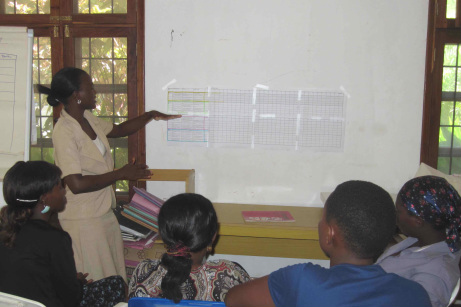
 Training for trainer started on the 15 October and will complete on the 25 October. The aim of the training is to increase resources in order to provide more capacity building training for vulnerable and underprivileged girls in the areas where there is great need for our “Girls in Crisis” project. 5 individual met the criteria to go through the training. The training focused on the attitude, character and skills necessary to bring maximum result in training girls who have many needs and require individual attention. The trainers-to-be found the training very useful and now working on logistical possibilities for reaching out to those girls who desperately need help.
0 Comments
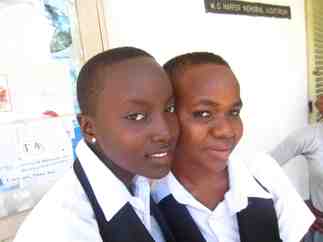 29 September 2012 - Two of the girls who took part in Second Chance project at Chipua, graduate from Form 4 at a private high school. Lilian Martin and Suhamu Richard are two of the many girls who took part in the Second Chance project in 2008. They passed the QT exam and then were awarded sponsorship and were able to continue and complete their year 10 in a private school. This is a huge achievement for Chipua. The relentless sacrificial work of many is bearing fruits. The other students who took part in the Second Chance project are likewise graduating at different high schools. Second Chance project took in youth who failed standard seven and were unable to continue education due to abject poverty and family circumstances. 2 March 2012– Chipua girls performed at 11 secondary schools in Dar es Salaam. The objective was to raise an awareness on girl circumcision through a theatrical performance, very befittingly called “The power of expression”. The secondary schools that have watched the play are: Magomeni, Baptist, Cambridge, Mbezi beach, Green acre, Cornelius, Kijitonyama, Lauriat International School, Kenton, Mwambao and Hananasif. It was amazing to see girls who just a few months ago were not aware of their basic rights, play in front of hundreds of students who would cheer at them and love them for their courage to say “no” to circumcision and domestic violence. Said the project coordinator. “Even though children read about these issues in their texts, but to watch it in a play filled with emotions will have significant impact on the minds of our young students”, said Mr John, principal at Cornelius secondary school. “This was very good, we hope they can come and perform again” said, Ms Faith, headmistress at Cambridge high school. Students found the performances very educative and informative as some of the students had no idea why female circumcision was a violation of human rights, “now that I have learned about this backward practice, it should be wiped off the face of the earth”, said one of the boy students at Mbezi Beach Secondary School. The drama starts with eight or so girls carrying the dead bodies of two girls who have just died due to circumcision complications. The story continues with a public gathering where parents are informed to bring their daughters for the next round of circumcision and that is when Susan and Jamila dare to say “no”, they are not willing to under go with the procedure. The aim of the play is to give a message to the girls that if they help each other and show solidarity they will be able to educate their community and set them free of this practice. Another message is to the parents that they should not undermine their children’s basic human rights, rather communicate with their children in order to understand their feelings and fears. The project was funded by FORWARD UK. “Now that I have learned about this backward practice, it should be wiped off the face of the earth”, said one of the boy students at Mbezi Beach Secondary School. 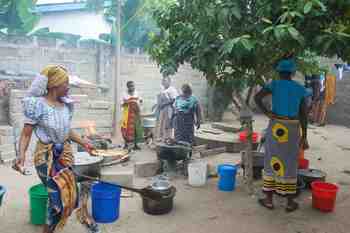 4 June 2011 - 31 vulnerable disadvantaged girls from Yombo vituka, a community on the outskirt of Dar es Salaam, were empowered and given back to the community in a graduation ceremony held on the 4th June. The aim of the workshop was not only to congratulate 31 girls for completing a six-month training but also to inform the community that these girls are available to reach out to other vulnerable girls and help them become confident. In addition the ceremony marked the start of independence of these girls. These girls in the coming months would embark their own small businesses such as trade, batik making, sewing, catering etc. Over 170 people participated in the celebration including the parents of the graduating girls, the community members and the program participants from other Chipua centre. The ceremony started by the program participants at Yombovituka welcoming parents and staff with a special song. Program was filled with artistic expressions of the skills they had learned during the training, these included, a drama on domestic violence, early pregnancy and divorce by the girls from Mikocheni centre, a poem about the important of lifeskills by Yombovituka girls, and more. The Director, Mitra Deliri gave a short talk encouraging the girls to be independent and that was followed by appreciation and thanks by some of the parents. “ I am very happy that my young wife has taken part in the training offered by Chipua. Now-a-days she focuses on gender equality and does not prefer our son to our daughter” said Mr. Simon Dumi “In addition she knows a lot about nutrition, health, and human rights” continued Mr Dumi. Mrs. Ulemela, mariam-Ally’s mother said, “I am proud of my daughter. She is committed more responsible”. A local government personnel appreciated Chipua because of the change she has observed in her daughter and the community. Mr. Seif Madirisha representative from the local government also thanked Chipua for empowering the girls, at the same time, he asked’ why only girls?’. He made an ardent request to Chipua to think about training to help change the altitude of the boy like they do to girls. Once the certificates were given to the 31 graduating girls, the actual celebrations started with lots of food and jubilee. 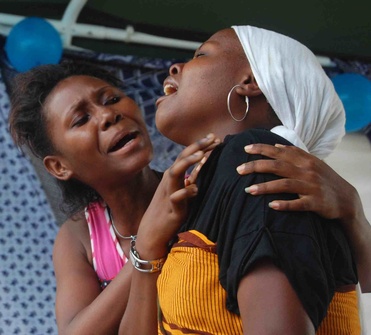 3 May 2011 - In Yombo location (a Chipua project area), after a Chipua member lost her father, program participants took the initiative of supporting their friend. They visited her home and literally helped her with her daily chores and organizing a funeral for her father. The support and solidarity was so sincere and unique that some of the visitors who came a long way to attend the funeral were shocked and asked the girls, “how come you are helping out so much?” and the response from a program participant was, “girls need other girls’ support in order to stand on their own feet and not feel disappointed and alone. We should go beyond talks or shows, but action”. Additionally, some girls sought out a widowed woman from the community and have since been assisting her in fetching water and cooking, also providing her company. Girl Leaders start a campaign called “Girl in Crisis Home Visits” May 2011 - Several times a week the project participants, taking part in the program at Chipua are accompanied by the Girl Leaders; go out to different communities to reach out to those girls who find it difficult to attend the “girls in crisis project”. “It is a difficult job, sometimes the parents of some of the girls do not want us to talk to their girl, but we have to try,” said Latifa a program participant. As a result of these home visits, many girls find courage and hope in taking part in the program. Girls’ leaders are those girls who took part in the previous projects and were transformed into Girl Leaders. 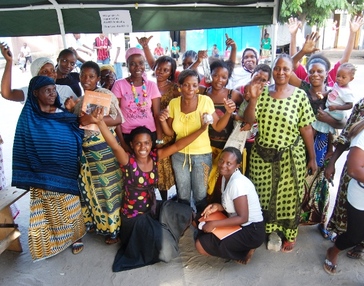 Mentors and community members in Kinondoni, Dar es Salaam DAR ES SALAAM, 8 November 2010 -- At a public gathering held in their home neighborhood of Kinondoni, five girls were welcomed and congratulated for their achievements after taking part in a 6 month training supported by AusAID. The girls were introduced to local women in a public gathering organizated in collaboration with the local government. These empowered girls made public testimonials as to how Chipua had made a difference in their lives. "I was sitting at home, idle, disappointed without any vision or any understanding of what I had to do, or what role I had to play in my society. But then I was lucky I found Chipua, where I learned that change starts with me. So, that was the starting point," said Albertina Fungumeza, a program participant since March 2010. "Since then, I have gone a long way. I am not the Albertina I used to be. I know how to use my hands to create money, how to start a business, how to prevent HIV/AIDS, and above all, I know that I have to help my community to develop." Victoria Sylvester another program participant continued, "the community will only develop when us women work together." The women from the community expressed their delight and congratulated the girls, who are referred to as mentors from now onward. These mentors will use a publication produced specifically for this purpose and impart their knowledge on life skills to other girls in the Kinondoni area. As part of the program, the mentors form their own girl groups and meet once a week to learn together and support one another. The public gathering was the first in a series planned to connect the program participants with their home communities where they will be mentoring other girls and women who need help. 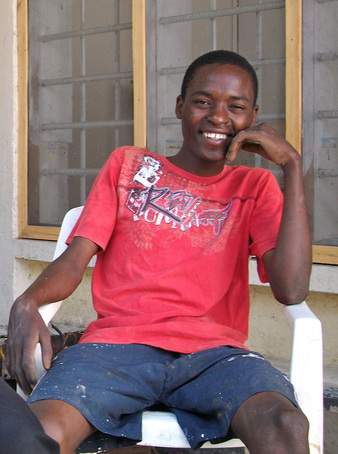 At 17, Iddy Yange had no home. His family members had either passed away or refused to take responsibility for him. Unable to gain access to secondary school because of his poor academic performance, he had completely dropped out of Tanzania's education system. Iddy was destined to become another statistic, one more hopeless and aimless youth wandering the streets of Dar es Salaam. He was destined to enter the informal economy and make very little money (perhaps not even enough to make ends meet), much less enough to support himself and a family. Iddy may have even turned to a life of crime or entered into a gang for support and protection. But Iddy was lucky. Iddy found Chipua two years ago. When he entered Chipua, Iddy's situation was desperate. A Chipua staff member arranged for accommodation and food for him in exchange for assistance with small tasks. He was enrolled in the Second Chance program, and he hoped to be able to pass the Qualifying Test and receive his high school diploma. But despite his best efforts, Iddy did not pass the Qualifying Test. Once again his future looked dim and gloomy; his hopes had been shattered, and he was not looking forward to returning to a life of desperation. But this time, things were different for Iddy. Although he was suffering a repeat of his academic failure, Iddy was a more resilient person. He had picked up quite a few valuable skills at Chipua: a hardworking ethic, self-confidence, hope and optimism. He was down but not out for the count! Armed with his new skills and assisted by Chipua, he located a skilled and successful carpenter who agreed to take him on as an apprentice. The apprenticeship was strenuous but in the end it paid off: after helping his boss for a couple of months, Iddy is now gainfully employed as a happy, skilled carpenter who is making a contribution to his community. Iddy is just one of the many participants who have been socially and economically transformed by Chipua's programs. If you'd like to contribute to the success of others like Iddy, consider getting involved with Chipua. 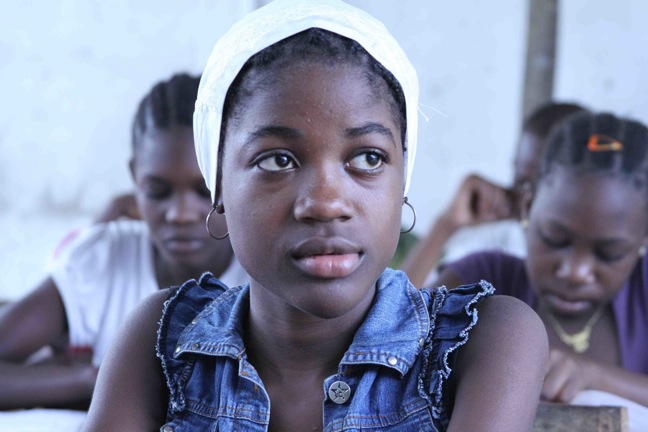 Chipua is a special place of learning for the children and youth of Dar es Salaam for a number of reasons. All of our projects and training are offered to free of charge. Participants are not obligated to attend simply to get their money's worth; rather, they come willingly and happily because they love to participate in our programs and find them rewarding and enriching. The most important aspect that attracts the hearts of those 150 participants who come to Chipua on a daily basis is the over ruling spirit of caring and concern, a rare and much needed characteristic in the developing world. This is then reflected in the way the training on various themes are offered and the participants are treated. On a normal day as you enter the training centre you find a big group of girls from different background diligently working with their trainer, assisting each other in learning, carrying on with their tasks joyfully. Another small group of girls are preparing the break snacks and tea for their classmates while quietly whispering to each other. On the other side of the yard in a dark classroom, a group of mixed youth pay attention to their teacher and once in a while the sound of their laughter fills up the air. In the adjacent classroom, the afternoon session early birds work together learning English with limited supervision. Inside, the coordinator and the director attend to many overwhelming issues including sick participants who should be escorted home, water and power outages, evacuation notices, hungry girls and boys, parents who beg for their children to be enrolled, rain pouring into the classroom due to porous thatch roof causing havoc and therefore stranded participants, lack of human resources to help, no telephone or Internet, hot and humid weather and no fan or air-conditioning to make it easier, limited space to deal with all, and finally but not least people who drop in to request new projects to address their needs. One might ask what really makes Chipua a special place? Despite the rigors of working in the developing world, our staff remain committed to our programs and, more importantly, to our participants. Encouragement is the corner stone of any training at Chipua. Staff members work with participants to develop an upright character that encourages the participant to become an active member of society who behaves in such a way that others want to work with them and spend time with them. After attending Chipua for only a few months, all the participants interact with each other differently and feel they are part of one human family. Chipua is currently operating five projects under the Girls in Crisis and Second Chance programs:
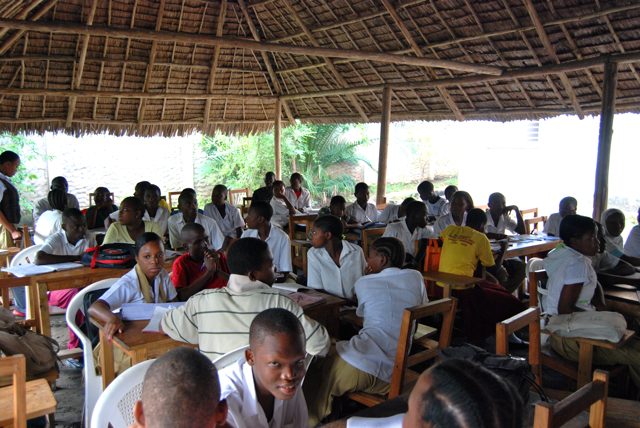 Days at Chipua begin at eight am kamili. Kamili in Swahili means exactly, and is the perfect word to use in this circumstance. At 8am Chipua closes its doors and only students who were on time will study for the day. Thus as you walk to Chipua you often see students outside the gates, studying their notes or pleading the different volunteers for forgiveness. The tactic seems severe to many of the students, however, the next day they come twenty minutes earlier than before. The morning Second Chance project students study Geography, Civics, History and Swahili. They also study English diligently for two hours a day. They are responsible and dedicated students who are expecting to resit for the QT (Qualifying Test) in November, in hopes of continuing on to form three (grade 9). Ravi, a Canadian volunteer is their teacher and keeps the class enthused and disciplined at all times, he is back on his feet and as healthy as ever after suffering from Malaria and typhoid just one week ago. He also makes a constant effort to learn Swahili, a language which only five weeks ago he had never studied before. George, Omari, Khadija and a few others study English in the mornings with Hoda, an Australian volunteer, before their afternoon classes. They recognize they need to study before and after class to learn English quickly. Their limited knowledge of English and Swahili respectively often make for interesting interactions. The girl’s project, also begins at 8am, there is a group of over 40 girls, many of whom have dropped out of school at primary level and would otherwise not have a chance to receive some sort of vocational education. They are currently learning to sow, and the more experienced girls are already making bags, and tapestry items that they will be able to sell in the future. In addition, they study life skills, civics and topics of their own interest. They often help Isabel, one of the new volunteers with her Swahili and read easy children’s books about various subjects such as, AIDS and birds to her. The girls get along well, and find a network of support among themselves. Tea time is everyday at around 11am, and the girls take a rest and eat delicious maandazi (a local variety of fried bread) and biscuits with their tea. 12:30pm is transition time, the morning QT students (Second Chance project) are done for the day and afternoon students begin to arrive. Afternoon students have very limited knowledge of English. As a result, they will be at Chipua for two years. The first year, they will study Englsih exclusively for three hours every afternoon. The afternoon group is divided into two groups of about 25 - 30 students each. Currently, the two groups are taught by Abduli, a former student of Chipua and Isabel. As you observe the classrooms, you can hear the students repeat, hair, eye and ear, terms they often confuse while they learn body parts. At another moment, students moan and complain because Isabel has asked them to write their new vocabulary words 10 times. They do not understand the task but the teacher knows there is value behind repetition. Afternoons are also dedicated to cleaning and maintenance. Ravi fixes a desk in the office, while Mudy and Idy, two former Chipua students, help clean and clear out the storage room. Ravi’s belief in turning nothing into something is dramatically changing the appearance of Chipua in a few short weeks. Students that have recently passed the QT examination come and go while they keep Chipua informed of their future plans and search among their family members for support to continue on to secondary school. Students are given homework for the next day and reminded that they will never learn English if they do not study at home. Thus a day at Chipua culminates at about 4pm. Days are sometimes hectic, or affected by the rain but all in all old and new projects continue, and there are many students who throughout the years are grateful to Chipua for the education and second opportunities they received there. 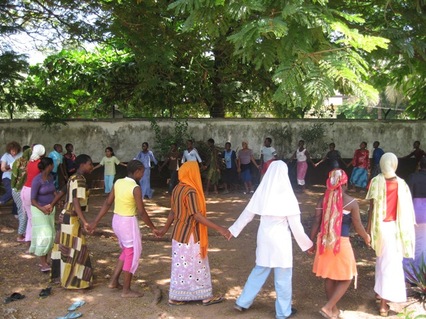 DAR ES SALAAM, 9 October 2009 -- To many people today was an ordinary day but not for the 46 youth who took part in the “Second Chance” project at Chipua. Many of the participants have been with the program for a year or more of study, and today marked the culmination of their efforts. It truly marked a “second chance” for them, a chance they were denied when they failed at standard seven, a chance for education. Today, 46 of Chipua’s participants sat for the Qualifying Test (QT) national exam. The QT exam is designed to test their knowledge in five subject areas: Civics, History, Geography, Swahili and English. A passing grade will allow the students to continue in their studies through alternative education programs. The final weeks leading up to the test were extremely intense, spent diligently reviewing all the material that they had learned throughout the year, and the students endured many practice tests in order to make sure that they were as prepared as they could be. The students were registered with the Examination Council in May and seats for 46 students were reserved and paid for at Biafraa High School. On the assigned day the students walked together to Biafraa High School to sit for the test. Their faces showed a mixture of confidence, nerves, anxiety, and relief that the day had finally come. “The pressure is too much,” sighed Saidi Ebrahi as he waited in front of the examination hall to be called in. The test results will take several weeks/months to arrive but we are hopeful that many students will be successful. We are proud of the forty six students who showed that commitment and the dedication necessary to sit for the QT, and we wish them the best of luck! |
Archives
November 2020
Categories |

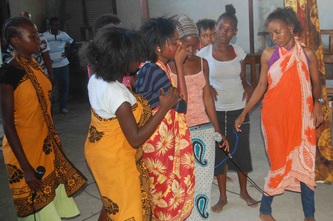
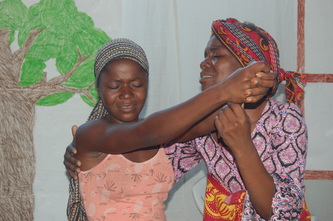
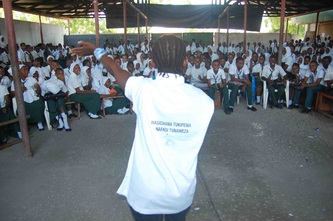
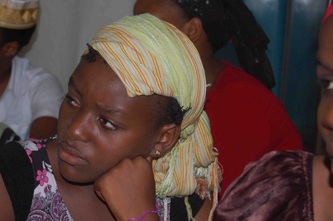
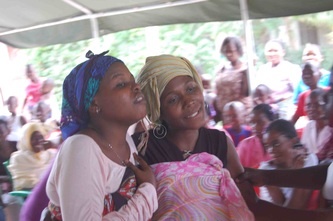
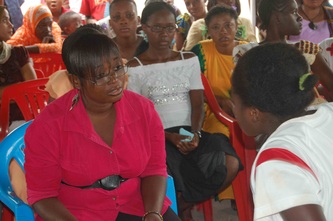
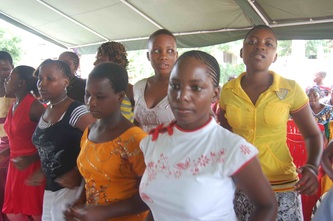
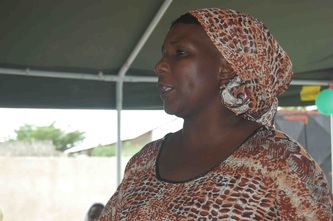
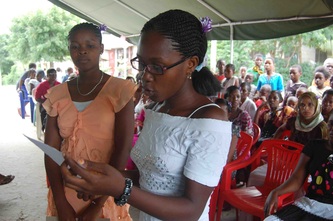
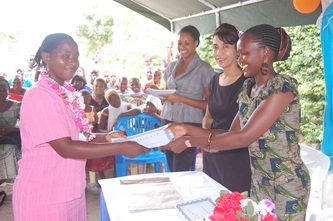
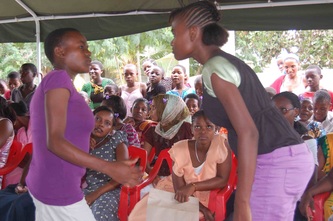
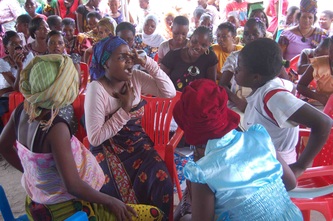
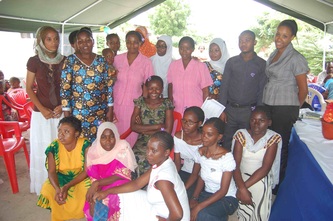
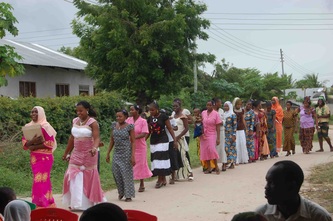
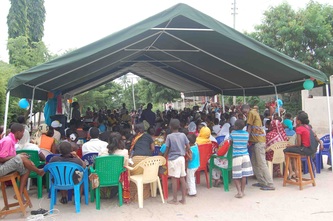
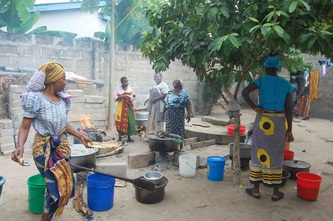
 RSS Feed
RSS Feed